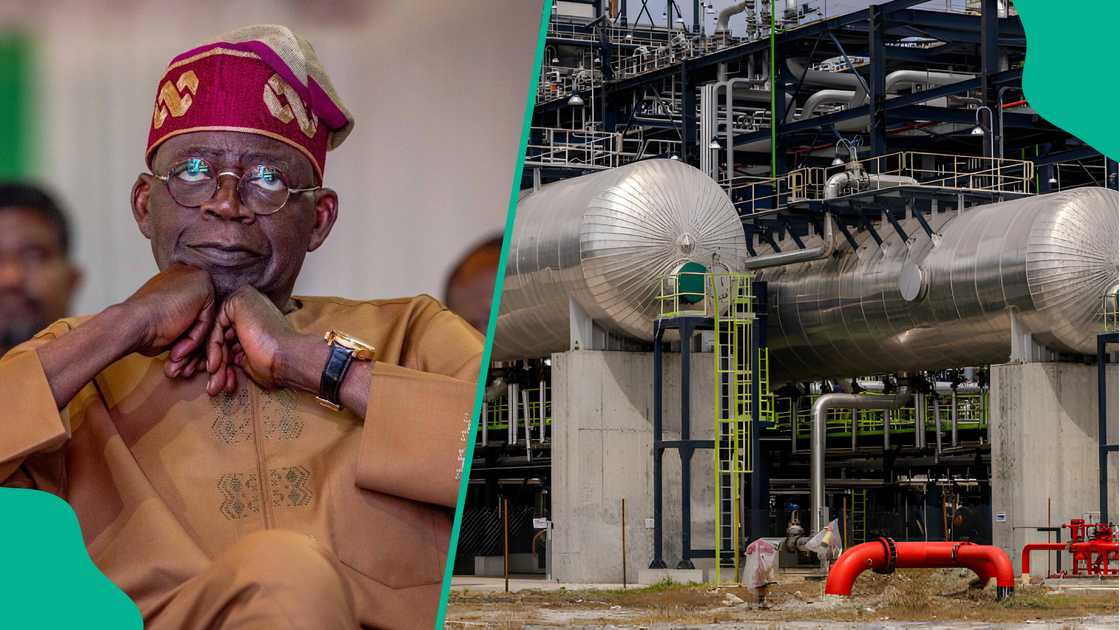FG to Address Pressing Issue in ‘Oil and Gas’ Industry, Sends Warning to Dangote, Others
- NMDPRA has issued warnings to refineries, depot owners, and other midstream and downstream industry participants
- It stated that the midstream and downstream sectors of Nigeria's oil and gas industry play a major role in the nation's energy growth
- It claimed to have approved significant Strategic Waste Management Initiatives aimed at maintaining ecological balance
Legit.ng journalist Zainab Iwayemi has 5-year-experience covering the Economy, Technology, and Capital Market.
Refineries, depot owners, and other midstream and downstream industry participants have received warnings from the Nigerian Midstream and Downstream Petroleum Regulatory Authority about the dangers of inadequate waste management.

Source: Getty Images
A memo containing this information was delivered to all midstream and downstream waste management service providers and licensees on April 3, 2025, with reference number NMDPRA/HQ/HSEC.02/2025/181.
Waste management needed to be addressed, according to the memo, which was signed by Mustapha Lamorde on behalf of Farouk Ahmed, the NMDPRA Chief Executive, Punch reported.
“As we continue to navigate the complexities of the oil and gas industry, we must address one of the most pressing issues facing our sector: waste management.
“Effective waste management is not only crucial for environmental sustainability but also for the health and safety of our communities and the long-term viability of our operations,” the NMDPRA said.
According to the regulator, Nigeria's oil and gas industry's midstream and downstream segments significantly support both the country's economic expansion and energy supply.
It was asserted, meanwhile, that these industries also produce emissions, liquid waste, solid trash, and chemical waste.
It issued a warning that if these materials are handled and disposed of improperly, there may be serious health concerns, land deterioration, water and air pollution, and environmental contamination.
“Section 31 (c) of the Petroleum Industry Act 2021 stipulates that the Authority promote healthy, safe, efficient and effective conduct of Midstream and Downstream Petroleum Operations in an environmentally acceptable and sustainable manner and Part V (2) of The Midstream and Downstream Petroleum Environmental Regulation (MDER) 2023, also states that a licensee or permit holder shall be responsible for the management of waste emanating from its petroleum operations from “cradle to grave” in accordance with the WMP of the project, activity or operation,” the memo read partly.
Tinubu govt's strategic waste management
To lessen these effects, the government stated that it has authorised important Strategic Waste Management Initiatives that are intended to preserve ecological equilibrium and strengthen our "cradle to grave philosophy."
Operators in the industry were tasked with carrying out thorough waste audits to methodically evaluate and determine the kinds and amounts of trash produced at different phases of our operations.

Source: Getty Images
They must use segregation procedures in an NMDPRA-approved facility to avoid cross-contamination and guarantee secure storage before final treatment.
The regulator encouraged licensees to use tactics including process optimisation, chemical consumption reduction, and the adoption of effective technology, such as creative wastewater treatment solutions, to minimise waste.
In a similar vein, they were instructed to deploy cutting-edge treatment technologies to eliminate pollutants and contaminants from waste streams while encouraging material reuse and recycling wherever feasible to lower the amount of garbage that needs to be disposed of.
The agency stated that strong monitoring systems must be in place to track waste management techniques and their efficacy, including efficient feedback mechanisms, even as it called for rigorous adherence to the NMDPRA regulations governing waste management.
“The incoming wastes shall be analysed before and after treatment for the relevant parameters of concern. The storage of both treated and untreated wastes shall be managed to prevent and minimise ingress of material into the environment. Submissions of waste manifests of all waste received at treatment facilities shall be ensured on a quarterly basis.
“All secondary waste generated from NMDPRA-accredited waste treatment facilities shall be accounted for and finally disposed of in an NMDPRA-accredited engineered landfill.
“Finally, effective waste management is a shared responsibility that requires initiatives, the industry can significantly reduce the environmental and health concerted efforts from all stakeholders. By implementing these strategic impacts of operations, ensuring a safer and more sustainable future for our communities and industry,” the NMDPRA directed.
FG announces completion status of another refinery
Legit.ng reported that according to the Nigerian Midstream and Downstream Petroleum Regulatory Authority (NMDPRA), the Kaduna Refinery project is 81.1% finished.
The Authority's CEO, Farouk Ahmed, provided this information during a recent event on Tuesday, April 15th, according to News Central.
Ahmed emphasised that in addition to reducing Nigeria's need on imported gasoline, the refinery improvement intends to shield the country's economy from changes in the price of crude oil globally.
PAY ATTENTION: Сheck out news that is picked exactly for YOU ➡️ find the “Recommended for you” block on the home page and enjoy!
Proofreading by James Ojo, copy editor at Legit.ng.
Source: Legit.ng

Zainab Iwayemi (Business Editor) Zainab Iwayemi is a business journalist with over 5 years experience reporting activities in the stock market, tech, insurance, banking, and oil and gas sectors. She holds a Bachelor of Science (B.sc) degree in Sociology from the University of Ilorin, Kwara State. Before Legit.ng, she worked as a financial analyst at Nairametrics where she was rewarded for outstanding performance. She can be reached via zainab.iwayemi@corp.legit.ng

James Ojo (Copyeditor) James Ojo is a copy editor at Legit.ng. He is an award-winning journalist with a speciality in investigative journalism. He is a fellow of Nigeria Health Watch Prevent Epidemics Journalism Fellowship (2023), WSCIJ Collaborative Media Project (2022), ICIR Health Reporting (2022), YouthHubAfrica’s Basic Education Media Fellowship (2022), Countering the Fake News Epidemic (MacArthur Foundation) 2021, and Tiger Eye Foundation Fellowship. Email: james.ojo@corp.legit.ng





